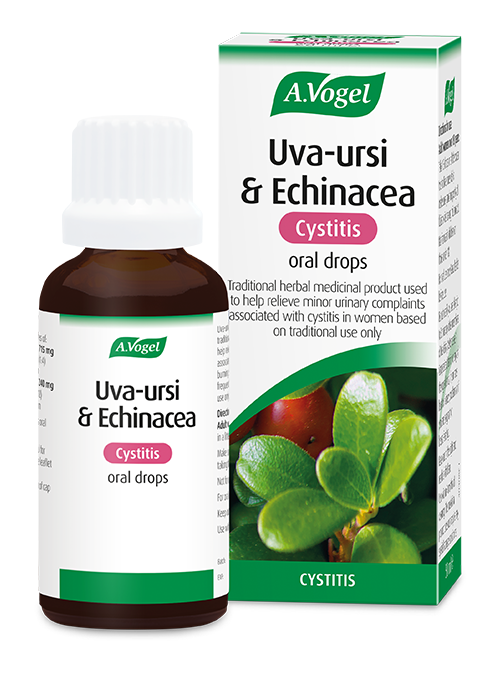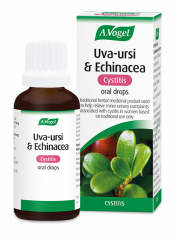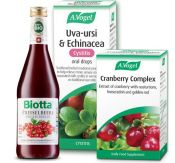Teenage twinges
What can go wrong?
- School stress - exam stress shouldn’t be underrated! Feeling stressed is a major contributing factor for cystitis, both the normal type and also interstitial cystitis, when an infection doesn’t often appear to be at the route of the cause
- Horrible hormones - fluctuating hormones are a normal part of being a teenager but in some cases the balance of your hormones could make cystitis more likely and if you’ve been put on the pill, this could also be having an impact
- Dodgy diet - teens often have lots going on with their studies, their love for technology and their busy social lives but a combination of late nights and budding social lives could also be contributing to cystitis. You may be more tempted by sweet treats for example, and forget to keep up with your water intake, all of which can be risk factors
How to put it right!
- Help yourself to stress less – prioritise meal times (this supports your blood sugar balance but also gives you an excuse for some downtime) plus be sure to schedule in seeing friends and getting outside into daylight. These tips will all help to establish a healthier work-life balance
- Tackle the hormonal issues – don’t just put up with it! Although in our early teens it’s quite normal for our hormones to become a little erratic, if your symptoms are severe it’s time to take action. Firstly, keep a symptoms diary to try and detect any emerging patterns however, if your symptoms are persistent or are affecting your day to day life, it’s time to go to the doctor

- Make some simple changes – when it comes to your diet, even small changes can make a big difference. Aiming to eat (or drink!) less sugar is a top tip, but even increasing your intake of water can be a really positive step.
Product pick: Uva-ursi Complex drops. Suitable for children from 2 years upwards, these drops are ideal to pop in your bag or locker - simply drop into a splash of water at the first sign of a niggle.
Young adult adaptions
What can go wrong?
- Social pressure - friends and colleagues, whilst delightful in their own right, may be more likely to promote unhealthy eating and drinking habits. Work dos, meals out or anything that involves alcohol can up your risk of cystitis
- Horrible hormones continued – as we delve deeper into our child-bearing years, hormones can continue to cause havoc. With issues such as PMS and endometriosis making an appearance, cystitis can often go hand in hand with many of these problems
- Getting broody – for those who wish to have a family, there can be a few stumbling blocks along the way when it comes to cystitis. There’s the phenomenon of honeymoon cystitis to contend with and women may suffer more from cystitis when they are pregnant as a result of all the changes in hormones – however, this is nothing that can’t be overcome!
How to put it right!
- Don’t be afraid to say no! Of course we want you to enjoy yourself but sometimes we need to give ourselves a break. Although social pressure can be tough at times, learn to meet in the middle more; why not attend the event but perhaps resist another night on the wine or bypass the dessert menu?
- Handle the hormones - keep a track of your symptoms and your menstrual cycle and talk to your doctor or a naturopathic practitioner about your options for rebalancing. Taking extra nutrients such as B vitamins, magnesium, chromium and zinc can really help with many hormonal symptoms during this time

- Get in the know – if you know what you’re up against when it comes to cystitis then you’ll feel more prepared and stress is less likely to be another thing working against you. Learn how lifestyle habits and treating cystitis at home can be useful no matter what stage of life you’re at!
Product pick: Wild Mountain Cranberry Juice. Safe to take during pregnancy or in combination with hormonal medication, good quality cranberry juice can help to support the urinary tract.
Silver smarting
What can go wrong?
- Dryness – although it’s natural, everything from our skin to our intimate areas can seem that little bit dryer as we age. However, diet, lifestyle and supplements can help calm those horrible hormonal fluctuations associated with menopause which many women report contribute to the worst of it
- Structural changes – structural changes down below such as prolapses are often more likely as we get older and in some cases this can contribute more recurrent cystitis
- Changing lifestyle habits – tea parties and lazy coffee shop mornings can become a more regular habit as we get older – and quite rightly so! However, if you’re now more of a lady of leisure, just watch that your intake of caffeine and sugar isn’t creeping up as this could have some detrimental effects
How to put it right!
- Employ some helpers – if dryness is an issue for you there are products out there to help. Omega-7 Sea Buckthorn Oil Capsules can help to support hydration all over the body – your skin and hair may even benefit too!
- Don’t be afraid to see the doctor – if you suspect a prolapse or a similar issue could be adding to your problems with cystitis, don’t be put off going to see the doctor. Something as simple as pelvic floor exercises may be helpful for you so it’s good to have a better idea of what your options are!
- Get into a routine – As much as retirement is a fantastic chance for us to relax and do things we enjoy in life, it’s easy to feel a little lost. You may feel like you’re lacking
 routine at first and this won’t help when it comes to managing cystitis. My advice is to make sure you are still eating regular meals, healthy snacks and are actively employing good sleep hygiene habits. These routines will help support your blood sugar and immune functions, both of which are important factors when trying to overcome recurrent cystitis.
routine at first and this won’t help when it comes to managing cystitis. My advice is to make sure you are still eating regular meals, healthy snacks and are actively employing good sleep hygiene habits. These routines will help support your blood sugar and immune functions, both of which are important factors when trying to overcome recurrent cystitis.
Product pick: Cranberry complex. To help keep recurrent cystitis at bay, you can support your urinary tract longer term with Cranberry Complex tablets.
Menopausal mayhem
What can go wrong?
- Fluctuating hormones – during the menopause levels of key hormones (namely oestrogen and progesterone) fluctuate which can often exacerbate our symptoms. Oestrogen receptors line every inch of your body, including your urinary tract!
- Dryness down below – as our oestrogen levels fluctuate, this can dry out the delicate mucous membranes lining our urinary tract. As they become drier, this makes them more easily damaged and ultimately, infections are more likely to crop up
- Mental menopause – the psychological symptoms of menopause shouldn’t be underrated as they can have a huge impact and we may find that twinges or symptoms that wouldn’t previously have bothered us, can hit us harder.
How to put it right!
- Understand your hormones - understanding what’s going on in your body at this stage is crucial. Many of us don’t realise that the Mirena coil or the pill we’ve been on for years may no longer be helping our symptoms and we may need to start gently supporting our oestrogen levels in order to help ward off those symptoms. Menopause support may be a useful addition to your regime but beware it isn’t suitable if you’re still on any hormonal contraceptives
- Hike up the hydration - when it comes to hot flushes, supporting your mood and you guessed it, cystitis, water is key. It’s a really simple change to implement and I bet you’ll be surprised at the success it can bring!
- Get support from loved ones – it’s easy to feel overwhelmed by all the changes that go on during this time, but you will come out the other side! Talk to loved ones about any changes or worries you might have so you can adapt together.
Product pick: Uva-ursi & Echincea. Once you’ve supported your hormones as best you can, you may still need a little helping hand and this is where our Uva-ursi & Echinacea complex comes in. You can take this up to 5 times daily to help ease any uncomfortable symptoms.
Uva-ursi & Echinacea Cystitis Oral Drops. Cystitis Treatment for Women
£. () Get it tomorrow, 14th January.











